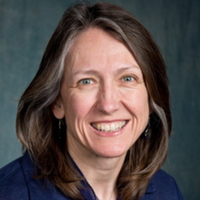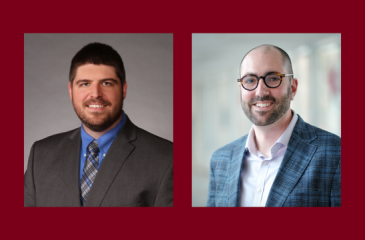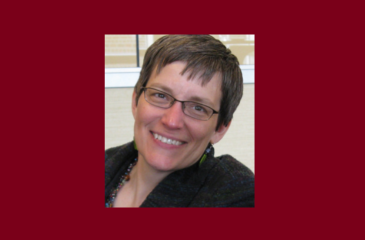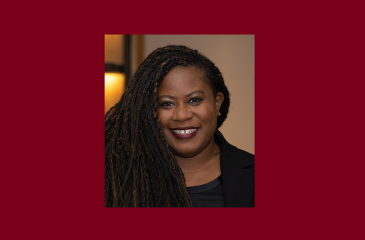This post is part of our "Bioethics in Focus" series featuring experts from the Center for Bioethics community.
Unintentional injuries are the third highest cause of death in the US according to the CDC, killing more than 170,000 Americans every year. Sadly, preliminary data from the National Safety Council revealed a dramatic 8% increase in motor vehicle deaths in 2020, despite many people staying home due to COVID-19 restrictions. It’s very likely that many of the people killed and injured had not thought about their death ahead of time. As a result, their loved ones were faced with difficult end of life decisions and lacked the information to make those decisions. Imagine if people had taken advantage of one of their birthdays to not only celebrate the beginning of their life but also consider the end? I argue that by doing so, you would be giving a huge gift to your loved ones.
Sometimes called a living will, an advance directive is a written document that says what a person does or doesn't want if they can't make their wishes known about medical treatment. It is a legal document and the requirements for completion, signature, and witness vary by state. Advance directives typically include information such as whether someone would want to have a breathing tube, a feeding tube, or CPR performed on them, and who should make those decisions for them if they are unable to make them for themselves (called a durable power of attorney for health care). A review of 150 research studies published from 2011-2016 found that only 36.7% of Americans had completed an advance directive, and completion of an advance directive was only slightly higher for people with a diagnosed disease (Yadav et al, 2017). A review of patient perspectives from 21 studies about end of life found three common concerns. The first being dignity associated with functionality and control (Rodríguez-Prat et al, 2016), and sometimes expressed as not wanting to be hooked up to machines at end of life.
Without an advance directive and named decision maker, disagreements between loved ones of a patient can lead to distress, conflict, and a call to a hospital ethics committee to help resolve the dilemma.
When end of life decisions need to be made and a patient is not able to speak for themselves and have not completed an advance directive, someone needs to make their medical decisions for the patient. In some states, who will make that decision is defined in state statute if a patient does not have an advance directive. Often, it is first a spouse or domestic partner, then parents, then adult children, then siblings. Without an advance directive and named decision maker, disagreements between loved ones of a patient can lead to distress, conflict, and a call to a hospital ethics committee to help resolve the dilemma.
Hospital ethics committees were developed in the 1980s in the US to develop hospital policies related to ethics, provide education about ethics, and assist healthcare teams with ethical dilemmas. A review of ethics consultations at Mayo Clinic over 20 years and a review of prior studies of ethics consultations found that the most common reason for an ethics consultation is withdrawal or withholding of life sustaining treatment (Swetz et al, 2007). I am a certified healthcare ethics consultant and have many stories of end of life discussions that have gone as well as can be hoped for, a time to celebrate a life, because we knew what that person wanted. I remember one case of a patient in the ICU after a bad fall. The doctors had determined that she would not live without medical support and would not be able to return home. She did not have an advance directive, but she had spoken with her husband and adult children many times about her wishes in such a circumstance. The family requested an ethics consultation and apologized for never having gotten around to completing their living wills. They all agreed on what their wife/mother would want, and shared stories about her life, alternating between tears and laughter. They talked about how generous she was, and her final gift were some of her organs. Unfortunately, I also have stories about ethics consultations where family members were pitted against one another fighting for what they thought was best for their loved one, sometimes causing a permanent rift and often adding more sadness to a situation filled with grief.
Without a doubt, discussions about death are not easy. In fact, they can be downright uncomfortable, even painful. You aren’t alone. There are many wonderful resources available to help you start a conversation about death. A few Federal websites with information about advance care planning include the National Institute on Aging at the NIH, CDC, and Medicare. The Conversation Project is an initiative of the Institute for Healthcare Improvement that is dedicated to helping people share their wishes for care through the end of life. Their website includes links to state-specific resources.
Hopefully, deaths from motor vehicle crashes and other unintentional injuries will decrease as the COVID pandemic comes under control. Unfortunately, they will never go away, so I hope that I have convinced you that the time to talk about death is now, regardless of your health. On your next birthday, please consider talking to your loved ones about what you want at the end of your life. It could be the least expensive and most important gift that you give and receive. Spare your loved ones additional pain when you die and put me out of work as an ethicist!

Catherine A. McCarty, PhD, MPH, RD, was born and raised in Duluth, MN. She received her B.S. and MPH degrees in nutrition from the University of Minnesota and her PhD in Epidemiology from the University of Pittsburgh. She recently completed a master’s degree in bioethics with an emphasis in clinical ethics at Clarkson University. After completing her PhD, she was the Head of the Epidemiology Research Unit in the Department of Ophthalmology at the University of Melbourne, Australia for eight years. During that time, she directed a population-based study of eye disease in Victoria, Australia and collaborated on similar projects in Hyderabad and Chennai, India and on Hong Kong. Dr. McCarty returned to the US in 2001 as a Senior Research Scientist at Marshfield Clinic Research Foundation where she was the Principal Investigator for the Personalized Medicine Research Project, a population-based biobank with more than 20,000 adult participants and 20 active research projects.



